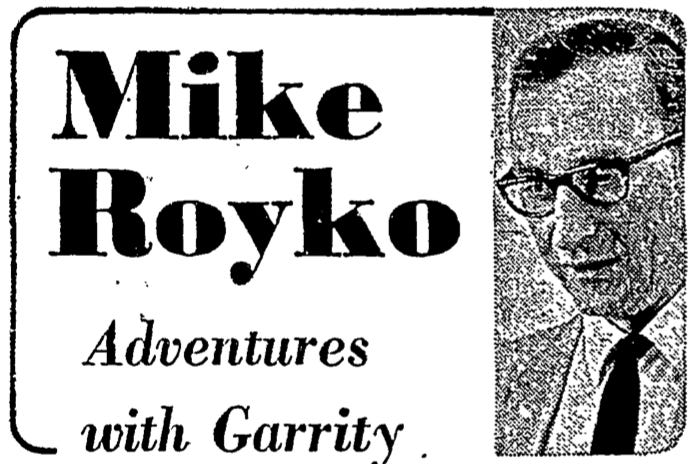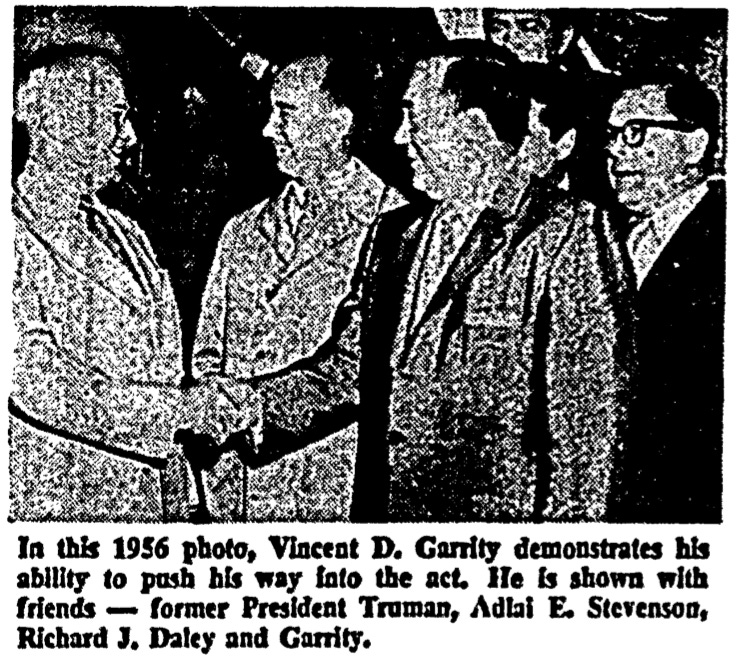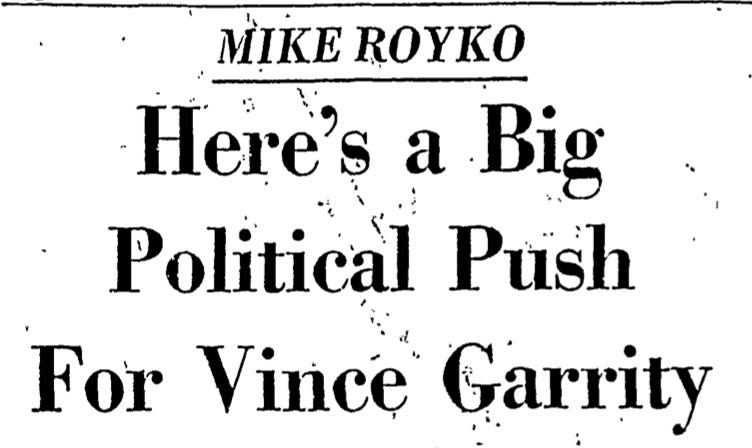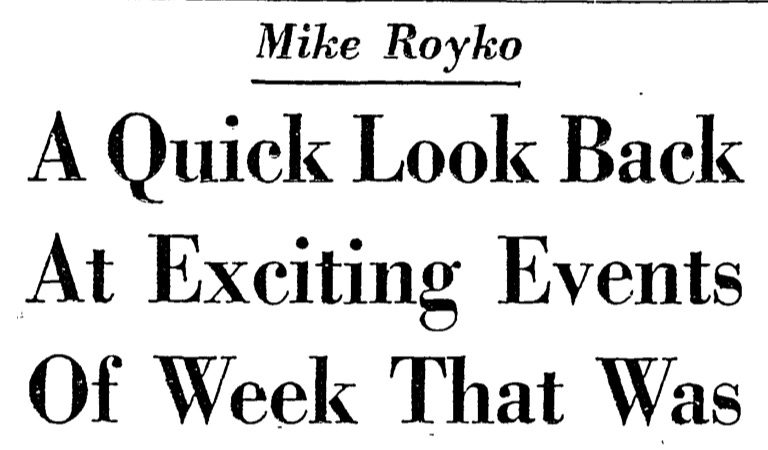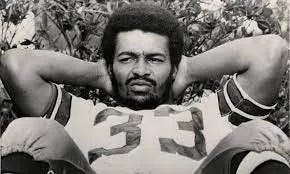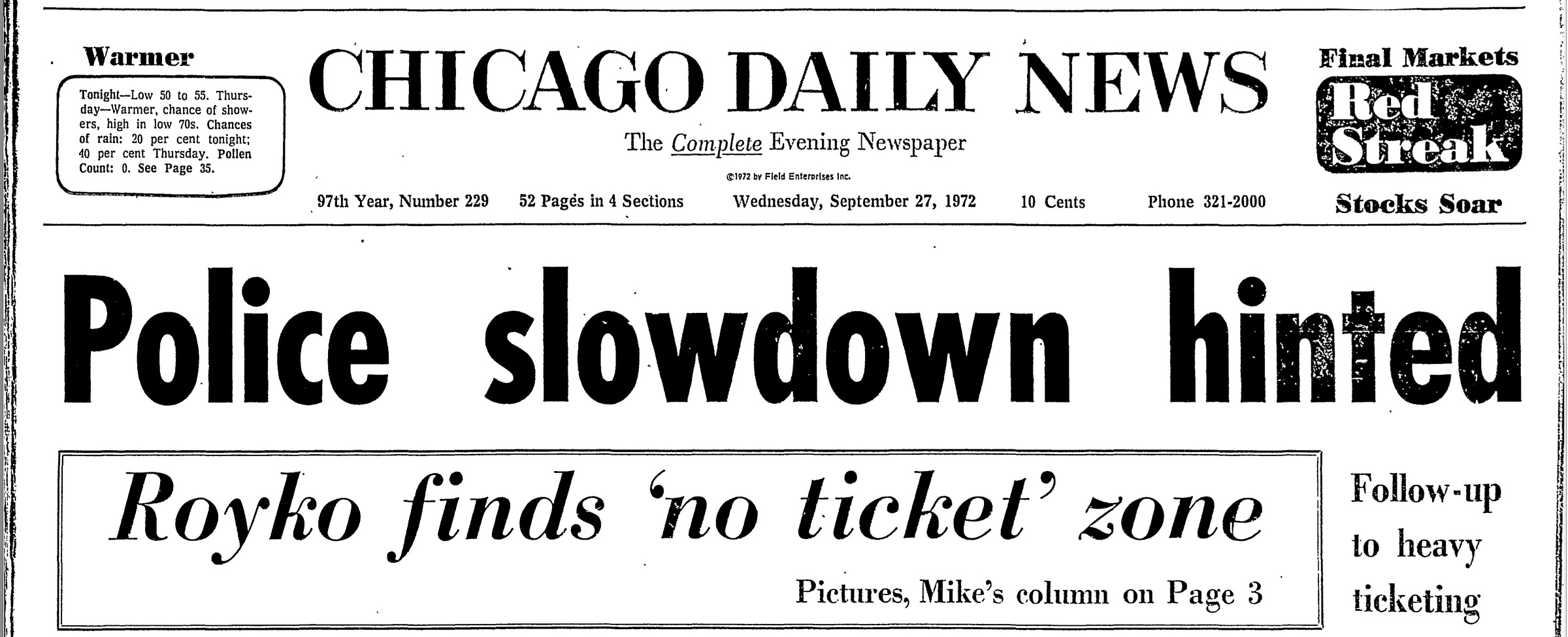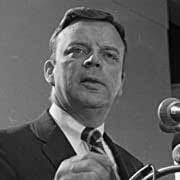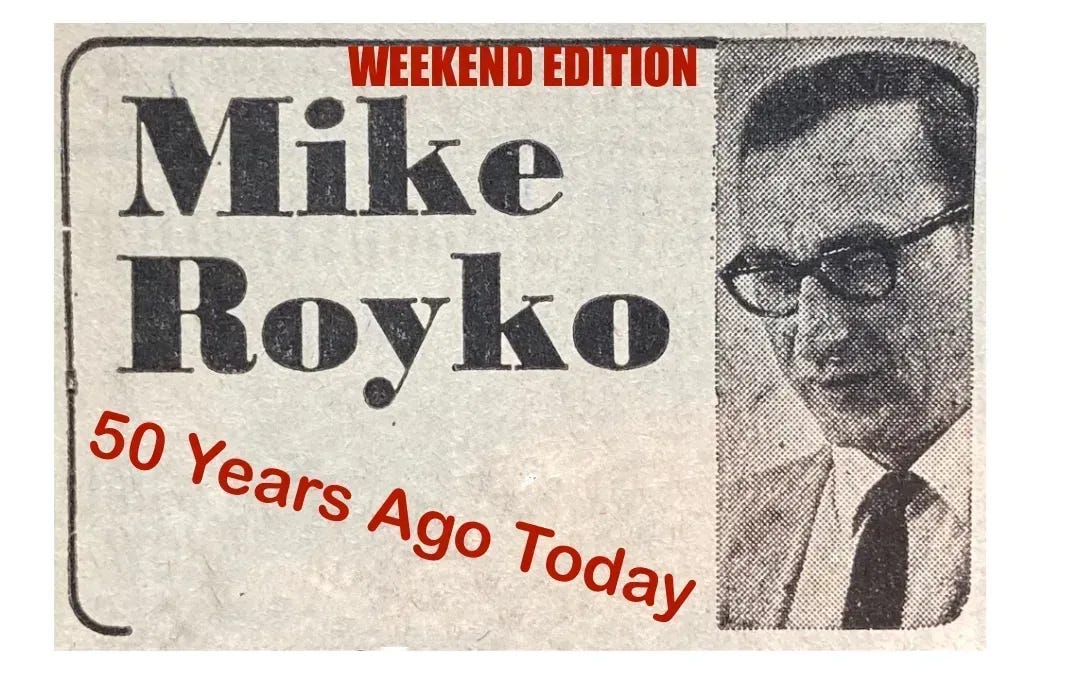To access all site contents, click HERE.
Why do we run this separate item, Mike Royko 50 Years Ago Today? Because Steve Bertolucci, the hero of the serialized novel central to this Substack, “Roseland, Chicago: 1972,” lived in a Daily News household. The Bertoluccis subscribed to the Daily News, and back then everybody read the paper, even kids. And if you read the Daily News, you read Mike Royko. Get your Royko fix on Twitter too: @RoselandChi1972.
September 25, 1972
When Mike wrote this, Vince Garrity was a well-known name, even a punchline. But you, reader of 2022, have no idea who Vince Garrity may be. So we’ll have to jump down the Chicago History Rabbit Hole.
Vince Garrity was a Machine hack whose zeal for politics and attention won him the newspaper adjective “colorful,” plus obituary articles in the Daily News and Tribune when he died on September 22, 1972 of a heart attack, after several years of ill health. Garrity was either 52 or 53, depending on whether you read the Daily News or the Tribune.
“He was Vince Garrity, the little man with the round face and the horn-rimmed glasses, boldly pushing his way through the crowds of politicians to grab the hand of a President or a place in front of the cameras,” wrote the Daily News’ Larry Finley over the weekend in an obituary article.
“At the televised funeral of President John F. Kennedy, Garrity was frequently lingering in the background of the TV screen,” per Finley. “He could be seen marching with the politicians or standing solemnly near Mrs. Kennedy.”
A loyal member of Mayor Daley’s Machine, the highest position Garrity attained was—what do you think? Representative? U.S. Senator? No, just Chicago Metropolitan Sanitary District trustee, 1958-1970. Unless you count Cubs bat boy higher than that.
“As a boy growing up in the shadow of Wrigley Field, Mr. Garrity delivered newspapers, worked as an Andy Frain usher, and in 1935 was the batboy when the Cubs won the pennant,” wrote the Tribune in an unsigned obituary article. Elsewhere, 1938 is the year given for Garrity’s batboy days.
Vince Garrity went on to broadcast Cub games with Roger Hornsby in the early days of television broadcasts, and hosted a morning radio show on WAAF for 26 years, until 1967—when as you’ll see, things started getting rocky for Vince.
“He was the political protege of the late Al Horan, a municipal court bailiff and Democratic power,” the Trib goes on. “He was fond of a gavel inscribed, ‘For a little guy, you come on strong. Earl Warren, Chief Justice.”
But let’s get back to Vince at JFK’s funeral. Daily News columnist John Justin Smith wrote about it at the time:
“A number of persons have been puzzled about the heavyset man who popped up several times on television screens during the vast coverage of the funeral of President John F. Kennedy,” Smith wrote on November 29, 1963.
“Once his face appeared on screens coast to coast as he leaned over the shoulder of Rep. John W. McCormack, speaker of the House.
“Twice he walked between Mr. McCormack and the television camera.
“This was in the rotunda of the Capital in the moments just before the President’s body was borne first to church and then to Arlington National Cemetery for burial.
“He was there—horned-rimmed spectacles and all—as Mrs. Kennedy walked from the Capitol to begin her day of ordeal.”
It was Vince. He accessed events like state funerals by claiming to be press, via his broadcasting gigs.
By 1952, Vince was “taking home $3,500 a year as a deputy bailiff of the Municipal Court,” per Smith. Remember, Vince’s clout was Al Horan, municipal court bailiff. So Vince got $3,500 in exchange for his Machine work, until he was slated for the Sanitary District in 1958. And that’s pretty good—almost $40,000 in 2022 money, for what was probably a no-show job.
For the 1956 Democratic Convention, John Justin Smith reports, a reporter “determined that [Garrity] appeared on three different networks in 22 seconds.”
Smith didn’t write about Vince just for a fun column though. He ended by noting that the minute Vince heard President Kennedy had died, he led Sanitary District trustees in a silent prayer, then called the newspapers to tell everyone about the solemn ritual, adding, “I was President Kennedy’s favorite announcer in Chicago. I’d appreciate anything you can do for me.”
That didn’t sit well with John Justin Smith. He concluded his piece by noting that Vince would run for re-election to the Sanitary District in 1965, adding:
“Once when [Vince Garrity] was just a radio character around town, his pushy approach was considered cute. Today, as a trustee of the multi-million dollar Sanitary District, it is something else. It is at least a downgrading of the standards we should expect of men who fill public office.”
Attempting to get publicity out of JFK’s assassination is slimy, we have to acknowledge, even if Vince Garrity was a fun “colorful” Chicago character.
And there was more to Vince Garrity’s 1970 exit from political life than ill health.
Here’s a cryptic hint in Dave Condon’s salute to Vince in his Sept. 24 “In the Wake of the News” Tribune column:
“Vincent De Paul Garrity was a great pal to have because he always gave more than he asked,” wrote Condon. “Tho he was eventually a victim of his own success and lost the political job gained by a mammoth avalanche of votes, Garrity took the reversals with good grace.
“At the end, many of his friends weren’t answering their phones, altho Dick Daley retained a warm affection for him, Ed Hanrahan gave him a job in the state’s attorney’s office and Charles O. Finley never forgot to send him an official American League season pass.”
It’s sad if Vince lost all his “friends,” but it doesn’t look like Vince was a “victim of his own success” in any possible analysis. Garrity’s political demise surely related to two points made in both papers’ obituary articles.
Here’s the Daily News version: “Garrity’s Irish temper frequently got him into scrapes and charges of fistfights. In 1966, his first wife, Patricia, sued for divorce charging cruelty.”
The Trib is slightly less diplomatic: “In December 1967, he was arrested for beating his former wife, Pat.”
No further explanation, which is understandable in an obituary article. A closer look at Garrity’s history shows that Mrs. Garrity’s divorce suit specified that Vince fell into “violent and ungovernable rages,” carried a loaded gun, and threatened to kill her. She asked for custody of their four children, aged 4-13.
Vince was arrested for drunk driving in 1967, and the Machine didn’t slate him for re-election in 1970.
Before we get to today’s Royko column, let’s see the four previous times Vince turned up in Mike’s space, all from Mike’s earliest days on the Daily News editorial page. Mike last mentioned Vince Garrity in 1965, a year before Pat Garrity sued for divorce on grounds that called Vince’s character into severe question, if true. The fact that Vince was already known for fistfights, and would soon be driving drunk—not that that was unusual especially in the ‘60s—suggests that Pat wasn’t making it all up.
Bottomline, I suspect that fun as Vince Garrity was, Mike may have quietly dropped him from the column line-up because it must have been apparent that Garrity was spiraling out of control. Just my theory.
1. October 14, 1964
It’s a scootch after one year since John Justin Smith’s column on Vince, and he is up for re-election as Smith mentioned.
Mike shares John Justin Smith’s feelings about Vince’s fitness for public office, but he expresses those feelings quite differently. Mike says he hopes Vince Garrity will be re-elected.
“I do not make this recommendation because I believe that Garrity is an outstanding board member,” Mike explains.
“I think that any good janitor who can use a plunger would make at least as good a trustee. And the three Republicans who are running against Garrity and the other two Democrats are better.
“But there are other things to be considered.”
Like what? Well, for one thing, “nobody in the world wants to be a Sanitary District trustee as much as Vince Garrity wants to be a Sanitary District trustee.”
There’s no greater honor to Vince— “At least none that he can get Mayor Daley to give him.”
Then there are Vince’s publicity ideas.
“Just recently, he suggested that I attack him in my column. Then, he said, he would attack me back on his morning radio show. By cross-attacking we could multiply our exposure, he said, and carry on a wonderful feud.”
But bottom line:
“Consider, for a moment, the primary purpose of the Sanitary District,” Mike concludes. “I’m sure you’ll agree that the job belongs to Vince Garrity.”
2. November 10, 1964
Vince Garrity has won re-election to the Sanitary District. Mike recounts that before leaving on a California vacation, Vince called to say “we are close friends; that he is going to do a great job at the Sanitary District; that he’s happy that he won; that we are close friends” etc. etc. etc.
“When he paused to inhale some air,” Mike asked Vince about the photograph below, which took up almost half the editorial page above Mike’s column:

Mike wondered why “it was almost impossible to see the President on television or in a photograph during his Chicago [November campaign] visit without also seeing Vincent DePaul Garrity.”
Vince’s reply: “That’s because every time one of those cameramen lifted his camera to take MY picture, all of those other guys would crowd around.”
3. May 3, 1965
Mike gets back from vacation and goes over the events he missed with “a payroller friend”. Note: Elsewhere in this phase of Mike’s writing, he may speak to “a payroller friend” who is clearly speaking Mike’s thoughts, either because Mike thought that was a more powerful or comical delivery, or because he was new to opinion writing and not yet quite comfortable espousing serious thoughts. See the Weekend Edition for an example. Spoiler alert, this payroller friend is not Mike, though we’re still not 100% sure if Mike made up most or some of this dialogue.
Mike’s “payroller friend” reports that “the biggest event of all took place right across the street at the Civic Center, our wonderful new rusty building.”
“It fell over?” Mike asks.
Note: “Civic Center” is the unimaginative original name for the Daley Center. At this time, the building was still new.
“Not yet, but they had the most wonderful ceremony there. The mayor showed up, and the aldermen, and judges. Even Vince Garrity. He got so excited, I hear he shook 52 hands, one foot and a nose.”
Mikes “payroller friend” reports that Mayor Daley made a speech to dedicate a big pink marble monument that reads “Erected by the Public Building Commission of Chicago, Mayor Richard J. Daley, Chairman.”
And they buried a time capsule with copies of that day’s newspapers—so—
“I mean you missed your big chance,” says Mike’s payroller friend. “And you made me miss mine, too. If you’d been working, there we’d be today—both of us—in a little box with a big pink monument, resting in peace...It brings tears to my eyes to think of it.”
Mike wonders if his payroller friend can do anything about it.
“I don’t know,” says payroller friend. “Beat it, and I’ll let you know the next time they dedicate a new Sanitary District plant.”
4. September 16, 1965
“Garrity, who is a public official, called a few days ago and talked continuously for 90 minutes while I listened and dozed,” Mike writes. “I have not looked into the record books, but I suspect that this is a record of some kind….I am not even sure what he said, although I took notes on the conversation, which is like trying to catch a school of minnows with your hands.”
Finally Vince told Mike he was not running for Cook County sheriff the following year, “no matter what anyone says.”
“This is the first time I had heard anyone say anything about it,” Mike notes.
“Before the conversation ended, he said he would like to get together with me out on a golf course some day. I thanked him for the offer but I prefer to carry my own clubs.”
Now we can climb out of the rabbit hole and read Mike’s 1972 remembrance of Vince Garrity.
Let’s look at Vince one more time before we dive into Mike’s column for today.
“Everywhere politicians gather in Chicago today, one of them will be saying, ‘Remember the time Vince said…’ or ‘Did you hear about the time that Vince…’” Mike begins.
“Most of the stories will be funny, outrageous and hard to believe, just as Vince Garrity was, the little politician, disk jockey and Chicago character, who died a couple of days ago.”
Mike says Vince Garrity “dropped out of politics” due to his health, “and an uncontrollable thirst.”
Mike’s best Vince story is this:
“It was quite a few years ago, and I was working as a reporter for a weekly neighborhood newspaper.
“One day, the publisher sent me to a press conference of former President Harry Truman, who was in town for a speech. The publisher didn’t want a story, he wanted me to get Mr. Truman to pose with a copy of a book the publisher had written so he could put it on page one and con readers into buying it."
“When I shouldered my way toward Mr. Truman, a little man said, ‘What do you want, kid?’
“It was Garrity, although I didn’t know him at the time.”
Vince had been hanging around former President Truman, lunging in whenever somebody took a picture. Mike explained his mission. Vince said:
“I’ll do better than that. Truman and ME will pose for you.”
Vince “grabbed the surprised former president, called him Harry, and the picture was taken, with both of them holding the book,” Mike writes.
“When the publisher looked at the photo, he screamed: ‘What’s that idiot Garrity doing in it? Who’d buy a book he recommends?’”
Vince was cropped out of the photo before it appeared in the paper. Still, Vince came to the office and bought a dozen copies. Mike asked him why.
“‘I’m still in it,’ he said, with a grin. ‘Look.’ He pointed at the book in Mr. Truman’s hand. I looked close.
“Sure enough, on the other edge of the book were Garrity’s fingers.
“‘You take what you can get,’ Vince said.”
September 26, 1972
“An executive at radio station KSDO in San Diego called to ask if I wanted to join in a rather unusual fund-raising campaign,” writes Mike.
This is before Go Fund Me, Younger Readers. The radio station executive wants Mike to write a column about football player Duane Thomas, who has been traded to the San Diego Charges from Dallas but who does not want to play football for the $20,000 his contract calls for.
The radio station has started a campaign to raise money to pay Duane Thomas more money, and they want Mike to get Chicagoans to contribute. They don’t mention exactly how much Duane Thomas is demanding.
Mike wrote about Duane Thomas back on January 11 as the 1971 season ended.
Recap: The 25-year-old phenom burst on the scene with the 1970 Cowboys, rookie of the year. But after the ‘70 season, Thomas wanted his three-year contract renegotiated and the Cowboys refused. At that time, Thomas wanted $80,000 rather than $20,000 to play the 1971 season.
$20,000 is $135,000 in 2022 money, which doesn’t sound like all that much, because athlete salaries have skyrocketed since 1972 far higher than inflation. At that time, though, it was a good typical rookie salary.
The reason $20,000 seemed especially low to Duane Thomas is that he had signed a common type of front-loaded athletic contract that paid him much more in bonus money for his first year, the ‘70 season. So $135k looked like chump change for the ‘71 season, particularly since Thomas had played so well in 1970.
Chicago Daily Defender sports columnist Doc Young initially supported Duane Thomas’ demand, but relented after Thomas publicly badmouthed the Cowboys management and coach Tom Landry.
“You cannot insult club officials nationally by impugning their integrity, calling them liars and plastic people, and then expect them to embrace you lovingly,” wrote Young.
The Cowboys initially traded Thomas to the Patriots for 1971, but for complicated reasons, Thomas ended up back with the Cowboys anyway. He led the NFL for 1971 in touchdowns and rushing touchdowns. He was an integral part of the Cowboys winning their first Super Bowl. But he was in the news just as much for refusing to speak, all season long—not just to sports writers, but even to his own teammates.
Now Thomas is heading into the third and last year of his rookie contract, and still trying to get a raise before the contract ends.
Mike thinks about it. He recalls that Duane Thomas played college football, and although many colleges “don’t demand total classroom attention from their football players,” Mike feels sure that “most players do learn to read before they are graduated.”
You can see where he’s going with this.
“And that means that when he signed his professional contract, he knew that he would be playing for $20,000 this year.”
Mike would like to tear up a lot of contracts himself—maybe stop paying his house mortgage—but “then the finance company would come and take everything away.”
If, however, Duane Thomas is actually illiterate, Mike thinks it would be best if he kept that to himself and still played out the contract.
“There aren’t many ways an illiterate can earn that kind of money these days,” writes Mike, “unless he runs for alderman.”
If you dig Mike Royko, check out the news he’s writing about here!
September 27, 1972
Did you miss Ticketpalooza in the current THIS CRAZY DAY IN 1972? It started on Sept. 26, and progressed through the week. Brief recap: Police in 1972 don’t have a union that can bargain with the city to get a contract. They want both—a union, and a contract.
The largest police organization, Confederation of Police (COP) held a “stormy rally” on Sept. 17 and came up with 20 demands for Chicago Police Supt. James Conlisk.
Besides the union and a contract, police want some reasonable demands—an end to one-man squad cars which they believe are unsafe; and some unreasonable ones—such as eliminating the requirement for police to testify in court rather than claiming the Fifth Amendment.
Police say they’ve been trying to get the city to talk about this for two years. Now, cops are engaged in an allegedly wildcat operation to put pressure on the city, supposedly not organized by groups like COP. This week, police are trying to each write 10 moving violation tickets per day rather than their typical average of two.
People are going bonkers.
Naturally, Mike is on the story.
“The squad car squealed to a stop and the policeman glared at us,” Mike opens.
He’s on Superior, behind the now demolished East Chicago Avenue police station, which was front Chicago between La Salle and Clark. Mike is with a Daily News photographer who’s taking pictures of illegally parked cars…that clearly belong to policemen.
“After watching us for a few moments, the man in the squad car barked:
“‘Are you tampering with those cars?’
“I held up my pencil and notebook. ‘With these?’ I said.”
More police come out the back door of the police station and want to know what’s going on.
“Just taking some pictures of these illegally parked vehicles,” Mike tells a sergeant.
“The sergeant looked up and down Superior St. as if he were seeing it for the first time.”
It’s a ridiculous mess of audaciously parked cars—on the sidewalks, next to fire hydrants, even blocking garage doors to St. Vincent’s Hospital.
The same view today, not as closely cropped and sans illegally parked cars, thanks to Google Streetview:
“A few minutes earlier, I had watched a policeman put a ticket on the windshield of a cab that was parked in front of a coffee shop at Clark and Chicago,” Mike notes. “The cabbie was grabbing lunch.”
Clark and Chicago, Clark and Chicago…Hey, that must have been Pixley & Ehlers!

In fact, Mike saw at least 12 tickets issued to poor slobs like the cabbie in ten minutes.
“If you ticket ordinary citizens for petty violations, why don’t you ticket these cars?” Mike asks the sergeant.
“That made him angry.”
“Why didn’t you go over to City Hall and take pictures of all the big shots’ cars parked illegally over there?” another cop asks Mike.
“‘And why don’t you,’ I answered, ‘go over to City Hall and ticket those cars instead of taking things out on working stiffs who will have to lose a half day’s pay to go to court?’”
When Mike and photographer Charles Krejcsi drive away, a squad car follows. Pretty soon, the blue light turns on and the cop pulls them over for not using a turn signal.
“That wasn’t true, but he needed some excuse and we hadn’t run anybody over,” writes Mike.
Best line of the whole column:
“There’s nothing that will make a person as sympathetic to a policeman as getting a ticket for having a defective tail light. It is brilliant public relations. Maybe firemen should dramatize their grievances by starting fires.”
September 28, 1972
“His name is Vince and he’s been driving a cab for almost 40 years,” Mike opens.
Vince knows all the shortcuts, the traffic patterns, the timing of the lights—so he could count how many tickets he’d gotten on one hand, until this week when the cops started handing out tickets like candy on Halloween.
First, Mike lets Vince tell us about his job for half the column. Mike is really channeling Studs Terkel today. I wish I could hear Vince’s voice, but I just imagine the Regular Guy from WXRT, and it’s probably close.
Vince has been robbed three times. Last time, Vince handed over $20.
“When the man started legging it down the dark street, Vince dropped into first gear, made a quick U-turn, drove up on the sidewalk, and caught him a glancing blow on the hip.
“‘I wasn’t trying to injure him,’ Vince recalls. ‘I was trying to kill him. But the SOB jumped to the side at the last second. He bounced off a wall, and got up and got away down a gangway. But it was the hardest $20 he ever came by.’”
Now, Vince has gotten two tickets in two days. Neither was fair, of course. Vince intends to get even:
“They want to get cute, I can get cute. I know a dozen restaurants where cops eat on the mooch. Every night they’re in there, from the night shift, getting free food. So I’ll call the commissioner’s office and tell them I’m an irate citizen and if they don’t do something about the mooching in those joints, I’ll go to the newspapers. The feedbag will be knocked off fast.”
“And I know the saloons they drink in free when they’re on duty. Every so often, I’ll make a call to the district and say that if they ain’t out of there fast, I’ll call downtown.”
Vince knows bookie joints where “the cops are wearing blinders” too. He can call the feds on that.
“I’m not the only one, either,” Vince tells Mike. “If there’s anybody who knows what the cops are up to, it’s cab drivers. We’re out on the street all the time, and we see things. They hurt us, we can hurt them back.”
September 29, 1972
“That’s one of the entertaining sides of Chicago politics,” writes Mike. “One day you watch a politician raise his right hand and proudly take the oath of high office, while his relatives applaud.
“Then you wait a while, and you see him raise his right hand and nervously swear to tell the truth and nothing but the truth, while his relatives wring their hands.”
Here’s the current list of local pols in big trouble:
Former Ald. Fred Hubbard awaits trial for allegedly stealing $100,000 from the nonprofit federal program he headed, which was supposed to get minorities into union construction jobs. Did you miss Mr. Hubbard’s Wild Ride? It’s right here.
Incumbent Cook County State’s Attorney Ed Hanrahan is on trial right now for conspiracy to obstruct the investigation into the 1969 predawn police raid by his office that killed Black Panthers Mark Clark and Fred Hampton.
Where to begin with Hanrahan references? There’s March 22, when Mike hung out at Hanrahan’s campaign headquarters on primary election night and watched Hanrahan, his family and supporters celebrate their win over the Machine. Recall that Mayor Daley’s Machine initially slated Hanrahan for re-election, then kicked him off the ballot when his indictment was still in place just before the deadline for filing petitions to get on the ballot. So Hanrahan ran against the Machine’s replacement candidate, Traffic Court Judge Raymond K. Berg, and independent Democrat Donald Page Moore. See also that week’s Weekend Edition for legendary Chicago politico Don Rose on that kooky campaign—Don managed Moore’s primary campaign against Hanrahan, and he also managed Republican Bernard Carey’s general election campaign (now ongoing in our 1972 timeline) against Hanrahan.
Former Illinois Gov. Otto Kerner is under indictment and facing trial for allegedly helping to get a new race track entity created so that in exchange, he and others would get race track stock at rock bottom prices, and spread that stock around to other Illinois politicians.
Mike covered Kerner’s indictment in his December 16 column. Kerner was the last Machine politician you’d expect to go down, wrote Mike. “He looked and dressed like Ronald Colman, the old matinee idol. He even sounded a little like him.”
Mike was so right.
And, in an imaginary tour of the Federal Building courtrooms, Mike can hear the guide telling us:
“Here is where an indictment was just returned against that distinguished former state auditor, Secretary of State, the present clerk of Cook County, and a magic name in Illinois politics. He’s accused of being a crook, too.”
He means Cook County Clerk Edward Barrett, who did indeed get his very own indictment just yesterday.
As the Daily News put it, “Cook County Clerk Edward J. Barrett Thursday was indicted by a federal grand jury on charges that he accepted $180,000 in bribes from a company that sold voting machines to the county.”
“I doubt if there is another part of the country where so many famous public officials are employing so many famous criminal lawyers,” Mike writes. “Men who used to call press conferences are now calling bail bondsmen.”
But what of the Democrats’ cries that the Republican Nixon administration is unfairly targeting Democratic politicians, via U.S. Attorney James Thompson?
It’s “probably true,” says Mike. “There’s nothing wrong with that. One of the great traditions of our two-party system is that the party in power tries to put the other party in jail. They both do it, and over the years it creates public confidence in the dishonesty of all politicians.”
Mike’s conclusion:
“You can’t say that nothing good comes out of all this. Illinois is currently being praised for having the most improved prison system in the nation. Of course we have. You don’t think these guys want to retire to a dump.”
September 30-October 1, 1972
As we here all know, weekends could be sad for a Daily News family because Mike Royko wasn’t in the Daily News’ single weekend edition. So we look for Mike elsewhere on weekends.
Remember that John Justin Smith column about Vince Garrity? There was a Royko column on the same page of the editorial section that day—November 29, 1963—because both Smith and Royko were getting a chance to write a column after star Daily News columnist Jack Mabley jumped ship for Chicago’s American, which became Chicago Today in 1969.
Here’s Mike’s column from that day—so early, there isn’t even a picture of Mike. Remember, this is right after President John F. Kennedy was assassinated. And recall that before Lee Harvey Oswald was caught, a popular theory was that Kennedy had been killed in Dallas for promoting civil rights.
“The little payroller slumped at his desk and looked thoughtful,” Mike opens.
“‘I have been talking to people about what happened in Dallas,’ he said, ‘and some of the things I have heard are remarkable.’”
The little payroller is astonished at how some people “can work so hard at being petty, small and evil.”
Think, says the little payroller, “how dedicated a person must be when he can say:
“‘This wouldn’t have happened if he hadn’t been going around stirring up the colored people and getting the white people angry.’”
The little payroller figures a guy like that has more theories.
“I’ll bet that if you ask him, he’ll tell you that Lincoln wouldn’t have got himself shot if he hadn’t been going around stirring people up.
“‘He’ll probably tell you that Jesus Christ should have kept quiet, too, instead of causing trouble with all that talk about love and good.”
The little payroller moves on to some Chicago reactions.
“And the tragedy in Dallas showed how quick-thinking some of our fellow Americans are. A precinct captain put up a flag at half mast in front of his house and asked a newspaper to come out and take a picture of it. He said it would really help him if they printed the picture. A man like that sure needs help of some kind.”
And:
“I noticed that a lot of people were enraged on Sunday. I don’t mean about what happened in Dallas. No, they were enraged because they couldn’t see the Bears play on television.”
Conclusion:
“I note that there was a lot said about that meeting down South a few days ago where the leader of the meeting said the President had died a tyrant’s death.
“About half the people at the meeting couldn’t stomach that kind of talk and walked out of the meeting. That made a lot of people happy. They think this shows that people are getting off of their hate kick.
“‘Maybe so. But you can look at it another way. Half of the people stayed.”
Note: Though I can’t find this meeting in the Tribune or Daily News archives, Wikipedia explains the reference:
In the South, where Kennedy was not popular because of his position on civil rights, some isolated incidents occurred, where some expressed joy to the death of Kennedy: schools in Mississippi, Louisiana, Alabama, and suburbs of Dallas itself.
President of the Memphis Citizens Council Richard Ely told the Nashville White Citizens Council that "I firmly believe Mr. Kennedy died a tyrant's death. He did not set back communism. He encouraged integration, which has the support of communism. He was a tyrant", causing half of the room, some were Peabody College professors, to leave after they unsuccessfully demanded Ely to provide evidence for his claims.
By the way, this feature is no substitute for reading Mike’s full columns. He’s best appreciated in the clear, concise, unbroken original version. Our purpose here is to give you some good quotes from the original columns, plus the historic and pop culture context that Mike’s original readers brought to his work. Sometimes you can’t get the inside jokes if you don’t know the references. Plus, many iconic columns didn’t make it into the collections, so unless you dive into microfilm, there’s riveting work covered here you will never read elsewhere.
If you don’t own any of Mike’s books, maybe start with “One More Time,” a selection covering Mike’s entire career which includes a foreword by Studs Terkel and commentaries by Lois Wille.




